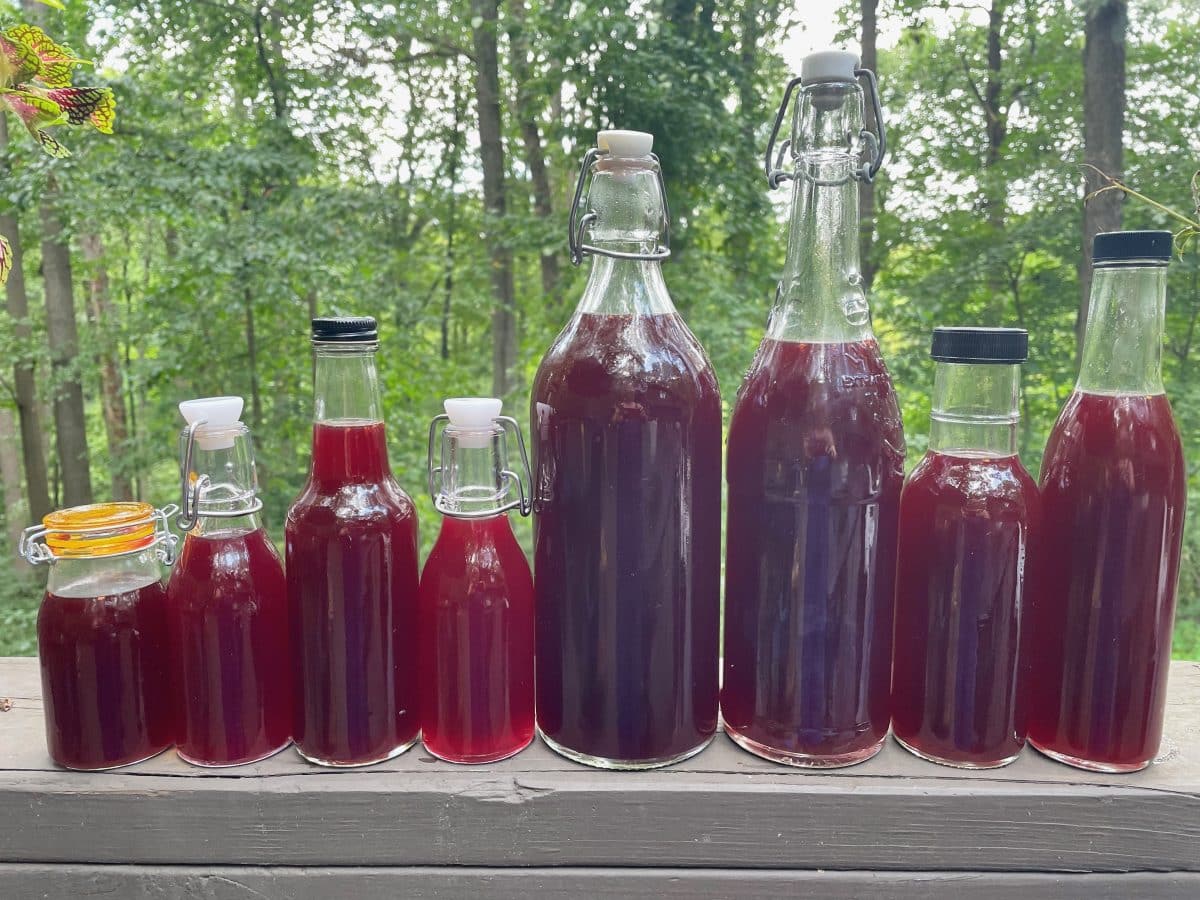This elderberry tonic recipe does not produce a thick viscous, overly sweet ‘syrup’. It is very adaptable, and more or less sweetener, citrus and herbs can be added according to personal preference. Elderberry is thought to help boost the immune system. Tonic, writes Google’s Oxford Languages Dictionary, is a medicinal substance taken to give a feeling of vigor or well-being. According to Merriam-Webster, a tonic increases or restores physical or mental tone and is REFRESHING.
Is this a syrup or tonic?
The answer lies in the ever-evolving culinary landscape that continually challenges and stretches traditional definitions. Culinary innovations often blur the boundaries between established categories, creating delightful new options.
This less-viscous elderberry “syrup” draws from both worlds. It offers the flavorful allure commonly associated with syrups, yet its sugar content and medicinal properties make it resonate more closely with a tonic. The term “syrup” is in quotes to pay homage to the traditional usage of the term, but with the understanding that this preparation straddles the line between a syrup and a tonic. Whatever you call it, the deep purple liquid adds an interesting color and flavor to drinks and desserts.
Ingredients
- •8 cups fresh elderberries (or 4 dried)
- •8 cups water
- •1-2 inch piece of fresh ginger
- •1 orange and peel of an orange
- •3 sticks cinnamon
- •1 vanilla bean (optional)
- •6 pods cardamom
- •6 cloves


Preparation
Wash elderberries thoroughly (avoid eating any raw berries).
Remove as much of the unripe berries and twigs as possible.
Simmer berries and water and desired herbs in a 1:1 ratio for 40 minutes, slow cook for 2 hours, or pressure cook for 7 minutes.
Strain solids into a cheesecloth bag or layer cheesecloth over a bowl. Once cool enough, squeeze excess liquid from berries into the syrup.
If desired, add honey once the liquid has cooled to just above room temperature (do not add while hot).
Siphon the syrup into glass bottles when cooled completely.
While commercially processed syrups tend to be thicker, I think homemade versions offer a unique touch. Shelf-stable for a few weeks with honey (or vodka) and a few months in the refrigerator, it’s best to refrigerate all your syrup for optimal enjoyment.

